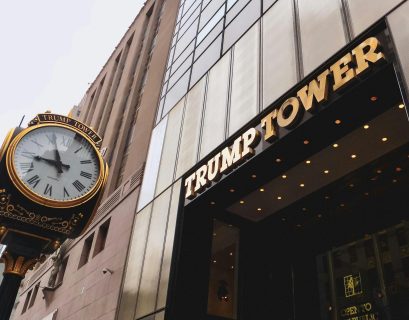Progressive reflections on the lectionary #43
Monday 11th November 2024
Mark 13: 1-8

The gospels are full of parables. Parables of Jesus, and parables about Jesus. The kind of writing we find there, invented long before the enlightenment understanding of ‘fact’ is, to modern and post-modern readers confusing and elliptical.
"But why did Jesus do/say that?” Some ask, when they might more fruitfully ask: “But why would the writer have Jesus do/say that? What point were they trying to communicate, and to what audience, and in what context?”
Efforts to find ‘authentic’ sayings or words that can be attributed to the historical person of Jesus are often unrewarded. Every now and then, though, we get a hint, in the new testament texts, that there was a specific phrase or sentence that made it through the filters of time, something which resembles something Jesus actually said.
Surprise surprise, this week’s text has one of those phrases.
Mark 13:2 Then Jesus asked him, "Do you see these great buildings? Not one stone will be left here upon another; all will be thrown down."
Not only does the idea of the temple’s destruction have a direct parallel in Matthew, it also appears in John 2:19 where it refers to Jesus’ body. In Luke’s sequel to his gospel, “The Acts of the Apostles” it forms part of the criminal charges levelled against Stephen.
These books were written, of course, after the great cataclysm - the destruction of the second temple in 70CE - one of the defining moments for the Jesus movement, and the Judaism from which it sprang. That Jesus might have predicted this disaster is not unlikely - he wouldn’t have been the only one.
Predictions of this sort have ‘previous.’ The works attributed to both Jeremiah and Micah contain prophesies of the Babylonians’ destruction of the first temple. Whether these were written, or edited, before or after the event, however is not clear. What is true, at least according to Talmudic tradition, is that the Rabbi Johanan ben Zakkai - a Pharisee contemporary of Jesus who lived in Galilee before decamping to Jerusalem - and whose escape from the besieged city is the stuff of storybooks, also prophesied the second temple’s destruction.
Perhaps its simply as straightforward as being farsighted enough to be able to look beyond the power of the immediate - to know that entropy gets to us all eventually - to be able to see beyond the bold protestations of pride and defiance.
It is, I think, highly likely that among the other controversial and challenging things that Jesus did during his lifetime, he did indeed warn that the second temple would fall. It is likely too that among the list of things he said, this was one which was passed on, retold, quoted, reflected on.
Before the siege of Jerusalem, and the arrival of Titus’ siege weapons, this idea must have seemed counterintuitive to say the least. The place rivalled any of the other great wonders of its time in scale and significance, it was twice the size of the Roman Forum and four times the size of the Acropolis in Athens. What’s more such a proclamation, in a climate where religion and politics were essentially the same thing, would have been tantamount to a kind of blasphemy. But afterwards - well ‘he said that would happen, he knew…’
There are many things we might choose to say about this passage, it’s not long nor is it dense, but among its many interesting features is this nugget that travels down through time. Jesus, the apocalyptic prophet-preacher who gathered his followers from the paths and villages of the rural hinterland looked at the might of the temple and saw through it’s (literally) gold covered façade to the shaky foundations of human venality and pride. Its a lesson that stands the test of time, too.
All empires fall. Everything you see here will change.
This blog is taken from Simon's Substack email series, to subscribe please go to https://simonjcross.substack.c...
Image: Photo by Tiziano Brignoli on Unsplash


Comments